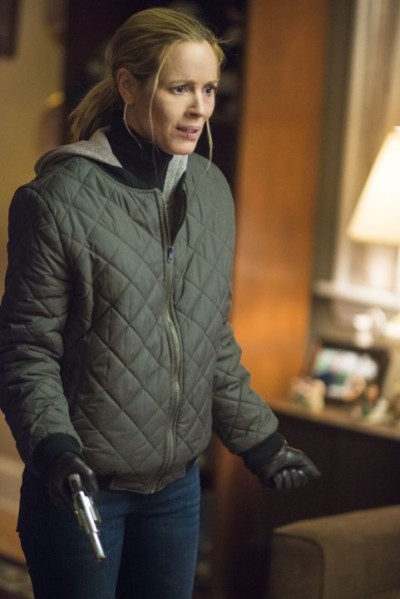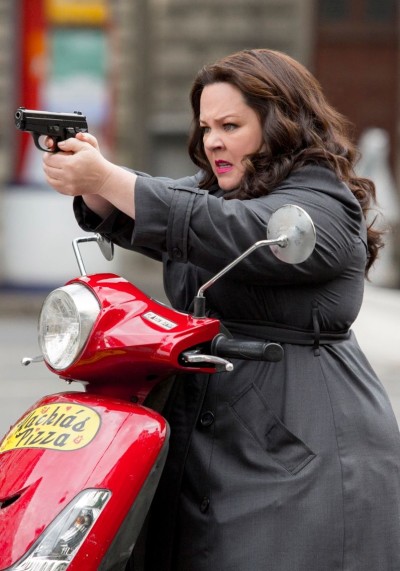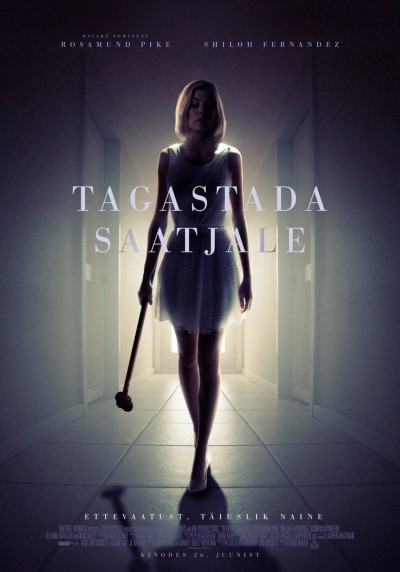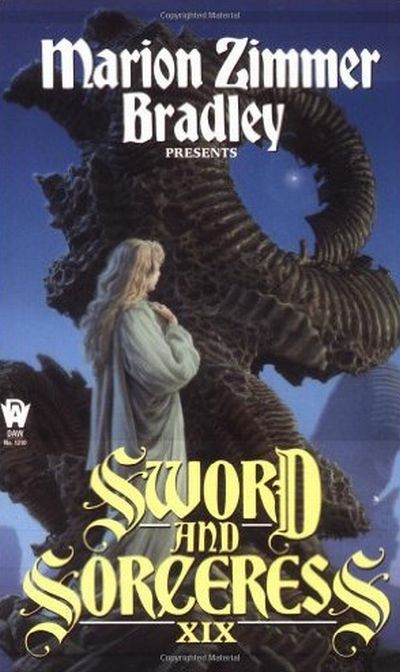★½
“Revenge – less eaten cold than luke-warm leftovers.”
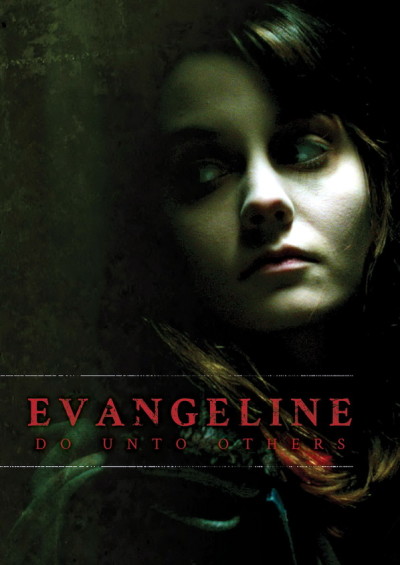 While I can’t find any sources to back my memory, I vaguely recall hearing a while ago about plans, either for a sequel or a reboot, to make a female version of The Crow. This seems like much the same thing, though based on the incoherent results here, they probably should bury the concept alongside Brandon Lee. Eva (de Lieva) is a preacher’s daughter, who has apparently led a sheltered life before enrolling at college. It’s not long, however, before she is attending her first frat party; unsurprisingly, this leads to her driving the big white bus. Things then go from bad worse, as a subsequent invitation from a fellow student leads to her being drugged, taken to the forest, gang-raped by a trio led by Michael Konner (Harmon), and left for dead. Or perhaps actually dead. For what happens next is either a) Eva’s corpse is possessed by some kind of demonic entity, and restored to life to take revenge, or b) she merely thinks that’s what happened, this being her psyche’s way of explaining and justifying said revenge.
While I can’t find any sources to back my memory, I vaguely recall hearing a while ago about plans, either for a sequel or a reboot, to make a female version of The Crow. This seems like much the same thing, though based on the incoherent results here, they probably should bury the concept alongside Brandon Lee. Eva (de Lieva) is a preacher’s daughter, who has apparently led a sheltered life before enrolling at college. It’s not long, however, before she is attending her first frat party; unsurprisingly, this leads to her driving the big white bus. Things then go from bad worse, as a subsequent invitation from a fellow student leads to her being drugged, taken to the forest, gang-raped by a trio led by Michael Konner (Harmon), and left for dead. Or perhaps actually dead. For what happens next is either a) Eva’s corpse is possessed by some kind of demonic entity, and restored to life to take revenge, or b) she merely thinks that’s what happened, this being her psyche’s way of explaining and justifying said revenge.
Both, widely disparate explanations are equally plausible, and writer/director Lam seems to have little or no interest in clarifying matter, perhaps because, from what I’ve read, she was more interested in making “feminist response horror,” whatever that is. As the quote mis-attributed to Sam Goldwyn put it, “If you have a message, call Western Union.” While I’ve no problems at all with messages in films, feminist or otherwise, they should always be secondary to the film, and you don’t get the feeling that’s the case here. Admittedly, this is because so little effort is put into telling a decent story: when you’ve so little idea of what’s going on, there’s no reason to care about any thing the creators are trying to say. Here, for example, there is also a confused and superfluous subplot about a PTSD-afflicted veteran, living in the woods, as well as an apparent serial killer, “Mr K”. The purpose of both these are obscure, since neither seem to add much of significance.
This is a bit of a shame, since the look of the film is much more decent than its content, aspects such as the photography, sound design and special effect meshing to an okay degree – even if some of the visual techniques do appear to have been lifted wholesale from a far better film about someone’s sanity falling apart and/or demons, Jacob’s Ladder. That creature, mostly seen in its grey, spindly fingers, is undeniably a creepy motif. However, particularly in this genre, style can only take you so far, before it emphasizes and exacerbates a lack of content. In that area, I kept hoping the film was going to deliver enough to justify its existence; but the end-credits rolled, and I was still left entirely unsatisfied.
Dir: Karen Lam
Star: Kat de Lieva , Richard Harmon, Mayumi Yoshida, David Lewis






